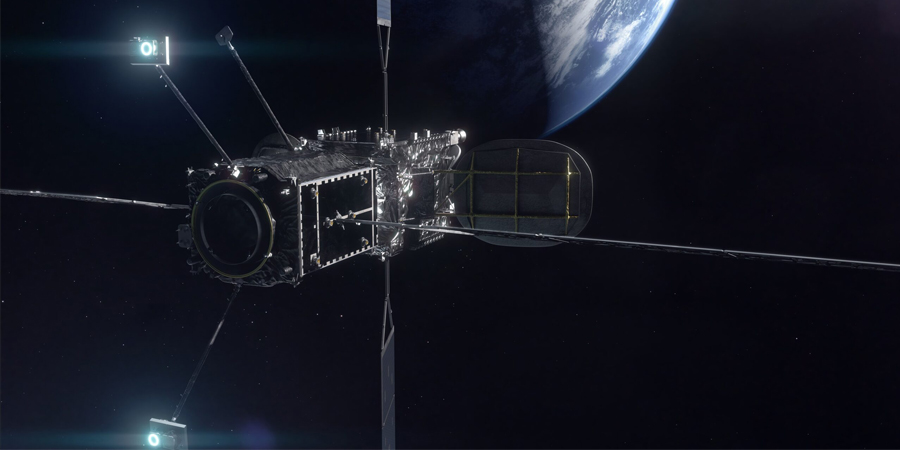Northrop Grumman Corporation and the company’s wholly-owned subsidiary, SpaceLogistics LLC, have successfully completed the docking of the Mission Extension Vehicle-2 (MEV-2) to the Intelsat 10-02 (IS-10-02) commercial communications satellite to deliver life-extension services.
Northrop Grumman is the only provider of flight-proven life extension services for satellites, and this is the second time the two companies have docked commercial spacecraft in orbit. Northrop Grumman’s MEV-1 made history when it successfully docked to the Intelsat 901 (IS-901) satellite in February 2020. Unlike MEV-1, which docked above the GEO orbit before moving IS-901 back into service, MEV-2 docked with IS-10-02 directly in its operational GEO orbital location.
“[This] successful docking of our second Mission Extension Vehicle further demonstrates the reliability, safety and utility of in-space logistics,” said Tom Wilson, vice president, strategic space systems, Northrop Grumman and president, SpaceLogistics LLC. “The success of this mission paves the way for our second generation of servicing satellites and robotics, offering flexibility and resiliency for both commercial and government satellite operators, which can enable entirely new classes of missions.”
MEV-2 will provide five years of service to IS-10-02 before undocking and moving on to provide services for a new mission. IS-10-02 delivers broadband and media distribution services to Intelsat customers across Europe, the Middle East, Africa and South America; it is a key satellite in the Intelsat-Telenor Satellite 1˚ West video neighborhood, which distributes more than 900 channels to some 18 million TV households across Europe.
“Intelsat has pioneered innovations in space-based technology for more than five decades. We are proud to work side by side with Northrop Grumman on [this] groundbreaking mission, the first-ever docking of a communications satellite in GEO orbit,” said Intelsat Chief Services Officer Mike DeMarco. “Space servicing is a valuable tool for Intelsat in extending the high-quality service experience that our customers depend upon. Northrop Grumman’s MEV technology has helped us extend the life of two high-performing satellites, while focusing our innovation capital on advancing the Intelsat next-generation network – this technology is a ‘win-win’ for us.”
Extending the life of an active spacecraft in orbit has only been done with human help before – such as the Hubble telescope servicing missions conducted by NASA astronauts.
The Mission Extension Vehicle is the first in Northrop Grumman’s lineup of satellite servicing vehicles, but following last year’s robotic servicing mission award from DARPA, the company is working with the agency on a mission that will feature the first-ever commercial robotic servicing spacecraft. This mission will expand the market for satellite servicing of both commercial and government client satellites with advanced robotics using the company’s Mission Robotics Vehicle (MRV) to conduct in-orbit repair, augmentation, assembly, detailed inspection and relocation of client satellites through robotics.
To further complement its on-orbit servicing portfolio, Northrop Grumman is leveraging model based systems engineering to develop its Mission Extension Pods (MEPs) which will also provide critical life extension services to aging satellites. The MRV will be used to install these pods on existing in-orbit commercial and government client satellites to extend their mission lives. The company is targeting 2024 for launch of both the MRV and the initial MEPs.
